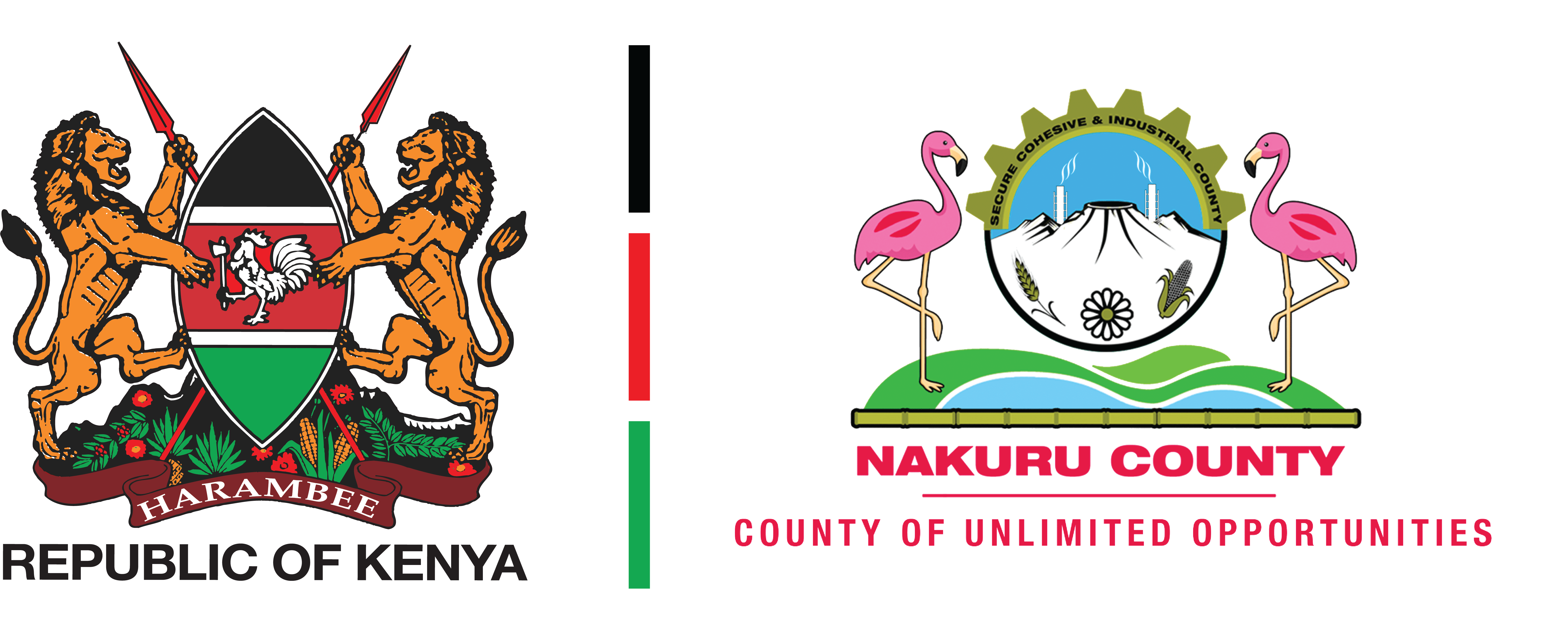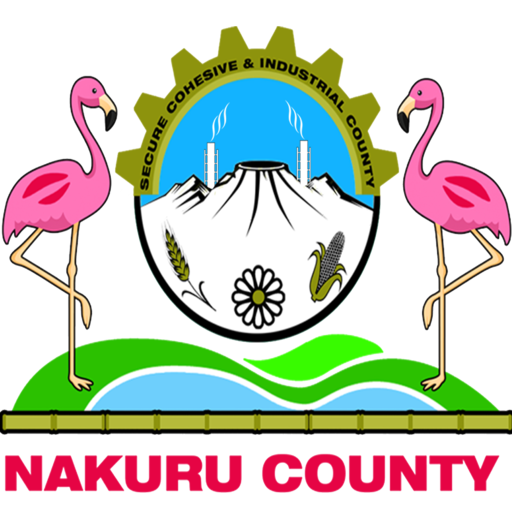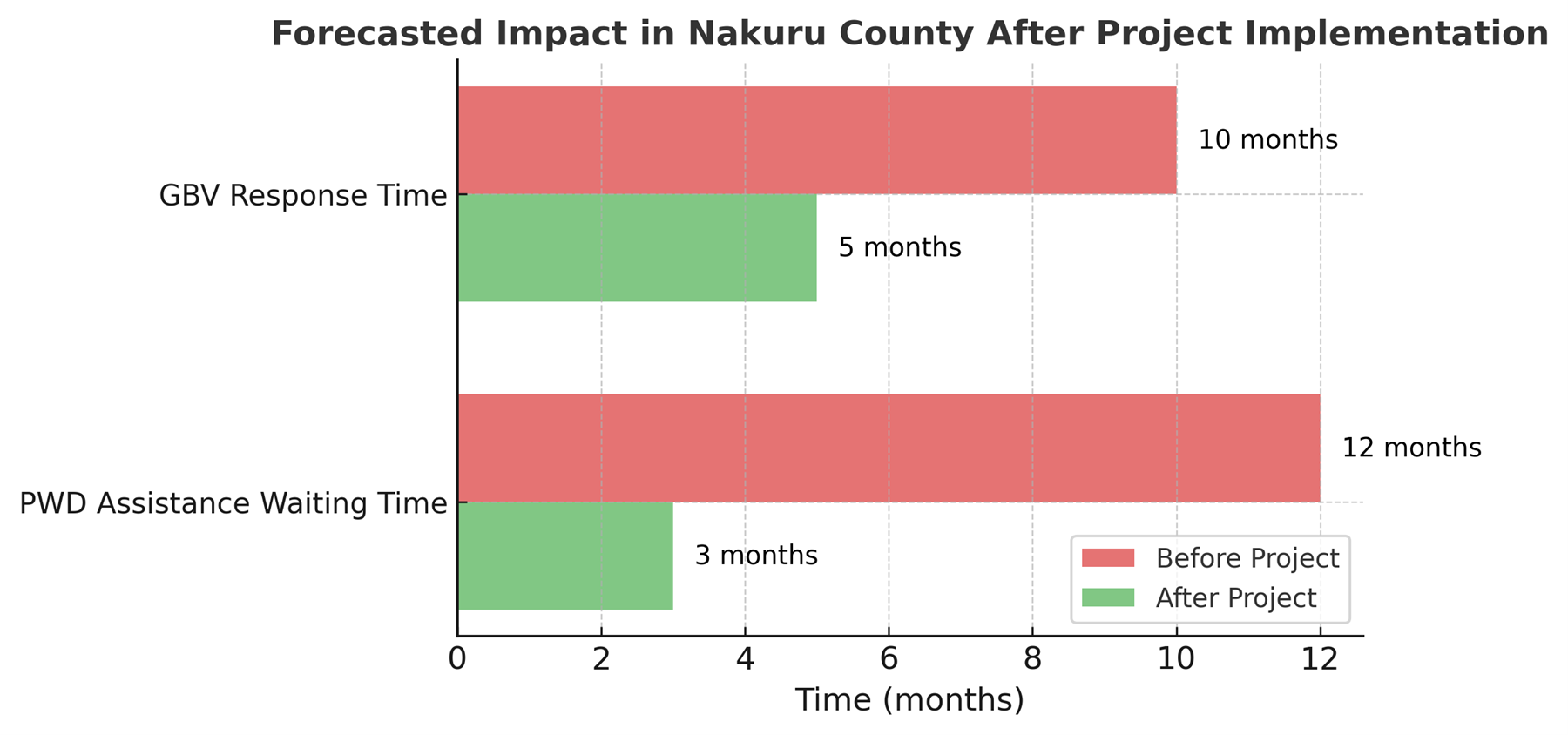A digitalisation project titled “Development of a Gender-Based Violence and Disability Digital Reporting Platform” (No. 2024-K-010) is being implemented in Nakuru County, Kenya. The initiative aims to fundamentally transform the way assistance is provided to victims of gender-based violence (GBV) and people with disabilities (PWD). It is the first technological solution of its kind in the region, designed to ensure faster, more accurate, and more transparent social support for vulnerable groups. The project is financed by the Lithuanian Development Cooperation and Humanitarian Aid Fund and implemented by the Vilnius Chamber of Commerce, Industry and Crafts (VPPAR) in partnership with the Nakuru County Government.
GBV and PWD Situation in Kenya
In Kenya, issues related to gender-based violence and people with disabilities remain among the country’s most significant social and institutional challenges. People with disabilities—especially women and girls—often face greater discrimination and limited access to legal and social assistance. Institutional fragmentation, slow processes, and a lack of reliable data prevent the timely delivery of the necessary support.
In this context, Nakuru County has become an example of how technology can strengthen social justice and improve institutional efficiency. The analysis conducted within the framework of the project revealed that the Nakuru County Department of Gender Equality, Sports, Social Services, and Inclusion faces significant challenges in managing both gender-based violence (GBV) and people with disabilities (PWD) cases. The current system is fragmented, overly dependent on manual processes, paper-based documentation, and uncoordinated data sources. As a result, cases are lost, the wait for assistive measures becomes unacceptably long, and preparing reports requires extensive resources.
Challenges in the GBV Sector (Nakuru County)
- Most cases of violence get stuck at the community or police level.
- Some community leaders still conceal GBV cases due to stigma.
- Court proceedings take an average of 90 days at each stage, and some cases last up to two years.
- There is no real-time monitoring – cases are tracked manually, and some are lost in the process.
- There is a lack of accessible psychological support, especially in rural areas.
Challenges in the PWD Sector (Nakuru County)
- The waiting time for assistive devices can reach up to 12 months.
- The registration process is bureaucratic – from medical diagnosis to assistance, several paper-based stages must be completed.
- Data on PWD assistance is collected by different institutions, making it impossible to see the overall picture.
- There is a lack of coordination among donors, aid funds, and municipal departments, leading to duplication and inefficient use of resources.
- Assistive devices are replaced only every five years, although their actual lifespan is often shorter.
Forecasted Impact
During the project, an integrated Microsoft Power Platform system was developed and implemented, connecting all key institutions — the county government, police, courts, health facilities, and social service centres — into a single shared information space.
By integrating GBV and PWD data into one system, it will be possible to:
• monitor each case in real time,
• shorten response and assistance times,
• ensure data security,
• strengthen inter-institutional cooperation, and
• increase public trust in social institutions.
Once implemented, the project is expected to have a significant impact in Nakuru County. It is projected that the waiting time for assistive devices for people with disabilities will be reduced from 12 to 3 months, while the response time to cases of violence will decrease by more than half.
By creating a centralised database, institutions will be able to coordinate their actions more effectively, and data-driven decision-making will improve the quality of responses and access to justice. Previously, the assistance process could take several months — now, beneficiaries can receive answers and solutions several times faster.

Gladys Kamuren, Nakuru County Chief Officer for Gender and Social Services:
“The analysis showed that only the combination of technology and institutional cooperation can truly transform the fight against gender-based violence and improve support for people with disabilities. The new platform will enable real-time monitoring, shorten waiting times for assistance, and strengthen public trust in institutions. This is not just a digital system but a step toward social transformation that reshapes our culture of response and accountability standards.”
Jolanta Lapinskaitė-Vaitulionienė, Project Manager: “This project is an excellent example of how Lithuania’s technological expertise can be applied globally to promote social justice and inclusion. It’s important to us that digital solutions serve not only business, but society as a whole.”
Sustainable Change and Partnership for the Future
This project is part of the Development Cooperation and Humanitarian Aid Program of the Ministry of Foreign Affairs of the Republic of Lithuania. Nakuru County serves as a pilot region, where the integrated digital platform for GBV and PWD management is being developed and tested. The project’s results will enable the system to be implemented in other regions of Kenya, creating a sustainable, inclusive, and data-driven model of social services that promotes transparency, accountability, and community empowerment. This project demonstrates how international cooperation and technology can be powerful tools for reducing social exclusion, improving access to justice, and strengthening community resilience worldwide.


